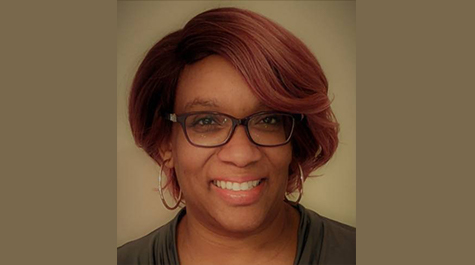Chandra B. Floyd Ph.D. ’20 wins dissertation award for her work towards equity in gifted education
Chandra B. Floyd Ph.D. ’20 has been named the second place winner in the Dissertation Award Competition for 2021 by the National Association for Gifted Children’s Research and Evaluation Network. Her dissertation, Promoting Equity in Gifted Education: Stories from Selected Virginia Gifted Education Leaders, shares the stories of three gifted education coordinators and their experiences with underrepresentation of children from racially marginalized groups through a narrative inquiry research design.
Floyd came to William & Mary to further research and understand the resistance she encountered around policy changes as a practitioner in gifted education. “As a gifted resource teacher, I saw underrepresentation," she said. "I saw students who were gifted who did not get into the gifted education program.”
She described that one test score would eliminate their opportunity for admission. Then, there was a regulation change in policy that meant no single measure could exclude or admit a child into a gifted program. But, Floyd shared, “Our attempts to bring our Local Plan into compliance with the change were met with tension and bureaucracy. And I wondered, ‘Is this why underrepresentation exists? Are others experiencing tensions around policy that could improve equity?’” Because Floyd has a passion for equity, she began on her doctoral journey at W&M to examine this educational issue and find ways to spark change.
“William & Mary provided me with the time to be a scholar and access to the knowledge superstars. It was wonderful to have access to all of these knowledge creators and to be supported.” Floyd served as a graduate assistant in the Center for Gifted Education and was a Holmes Scholar. “I received so much mentoring. As a Holmes Scholar, I attended a Dissertation Boot Camp where I was trained on how to develop my dissertation and ask questions.”
With the help of her dissertation committee, Tracy L. Cross, Jennifer Riedl Cross and Carin Barber, Floyd found a research design that was perfect for her. “I see the world in narratives,” she said. “Stories speak to me.” So, she began reading more narrative inquiry studies and embraced how this design could capture organizational complexities.
From her research, Floyd learned about deficit thinking and how teachers might not be able to see the giftedness in a child from an underrepresented group without professional learning. She described her participants’ experiences as feeling like “powerless leaders of an underprioritized program.” Floyd found a systemic, organizational problem as these gifted education coordinators did not have the resources they needed nor the ability to make change because of barriers in classrooms and school systems. This may have stemmed from loose coupling between the role of the gifted education coordinators and classroom practices, and coordinators’ inability to make change when other stakeholders may be blocking policies.
When asked how we might implement what she found to improve our schools, Floyd shared, “We are a long way from implementing anything close to it, because there are many barriers to fixing the barriers. I would like to see every educator being educated in all humanity. And for educators to be able to discuss how race and racism work so we can overcome it. If we don’t talk about it, it will continue to operate in secret.”
On her own journey of continued research, Floyd is now thinking about how to engage in educator preparation so that teachers are equipped with the formal knowledge of how to teach gifted students. As an assistant professor of gifted education at Kennesaw State University, she is a part of the Inclusive Education Department where they empower teachers with the knowledge to support gifted students, students with disabilities and English language learners. Her passion for equity, scholarly work in research, and practice in the field weave beautifully together to work towards her dream, “that we serve all children deeply and completely.”
